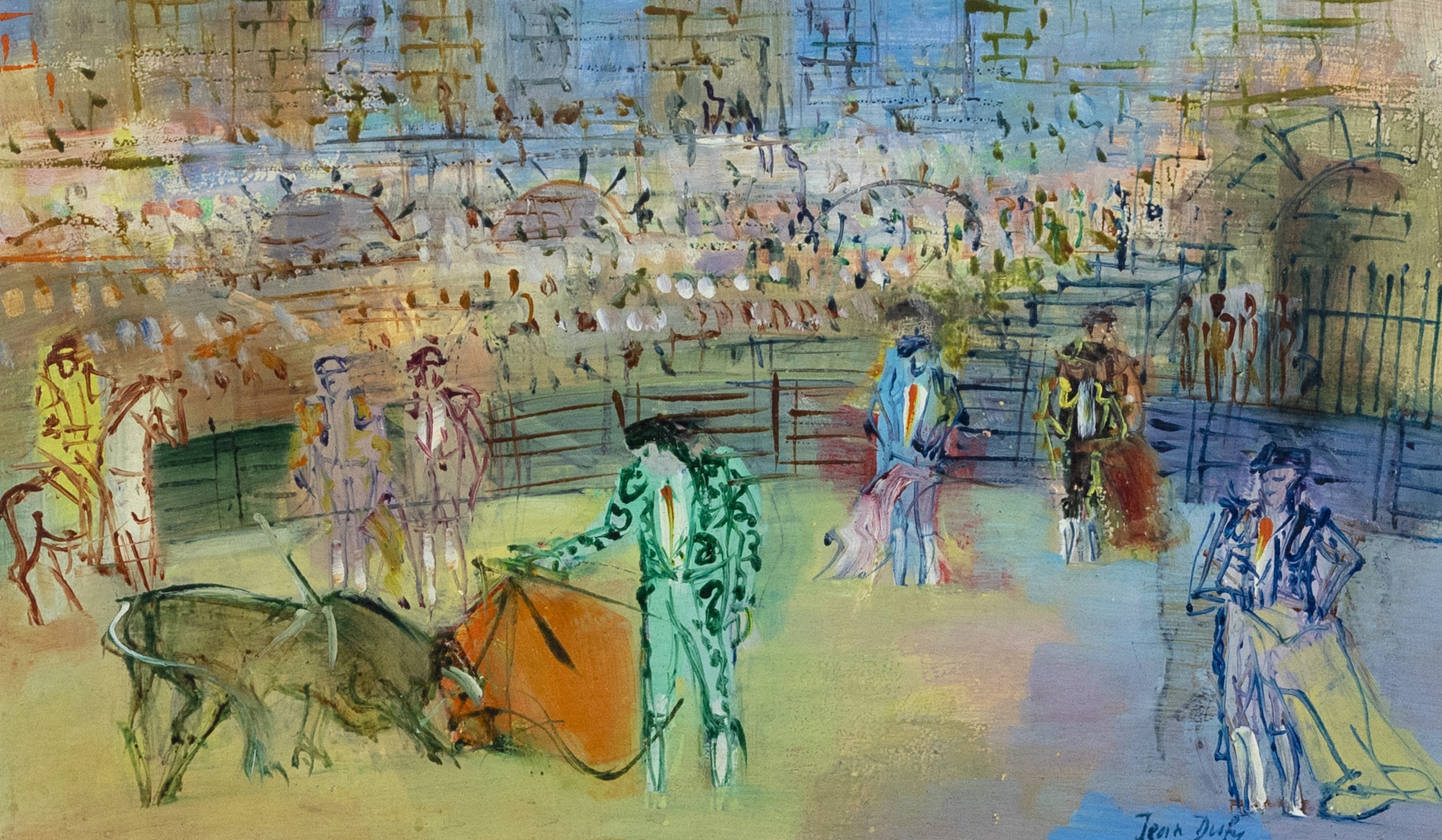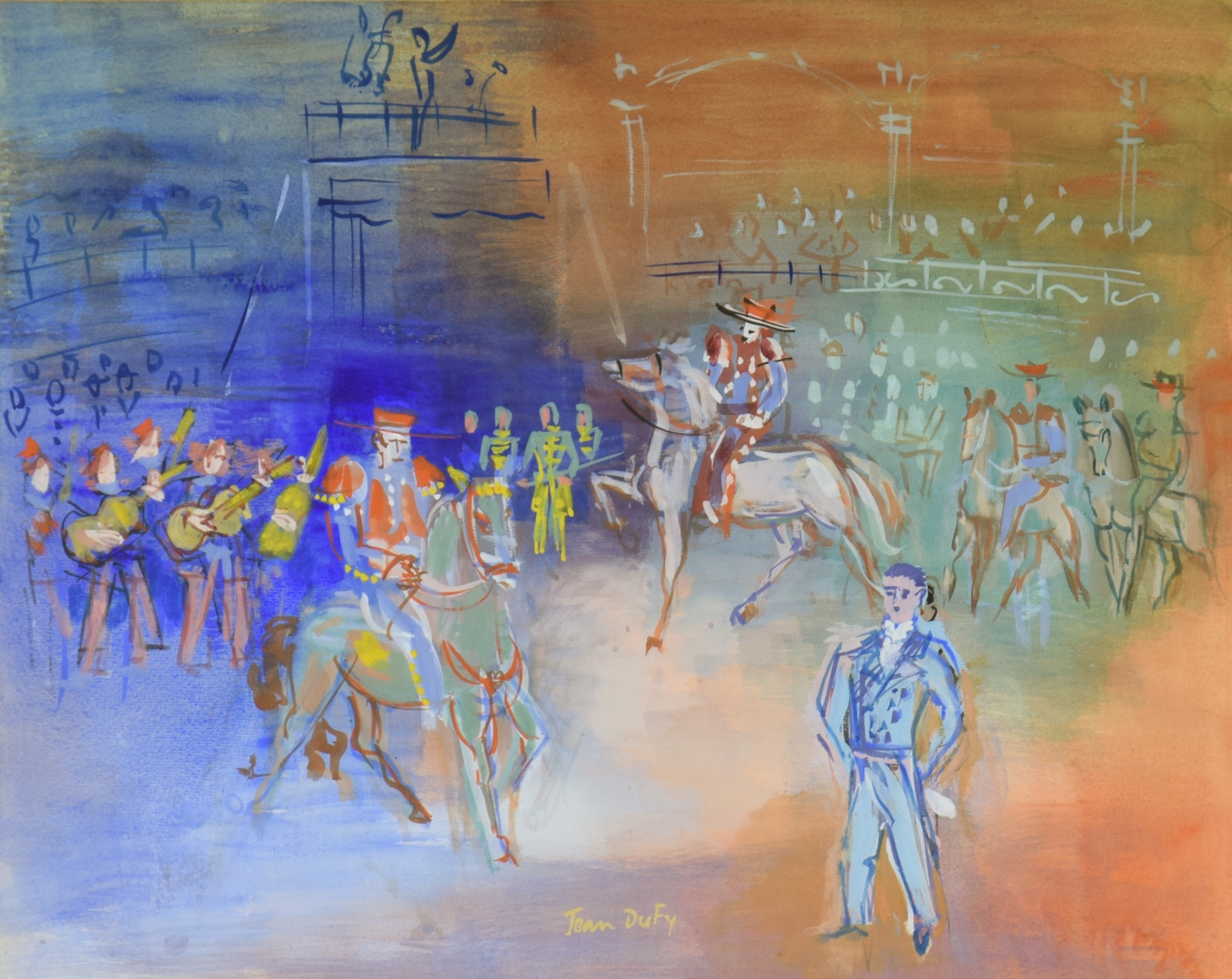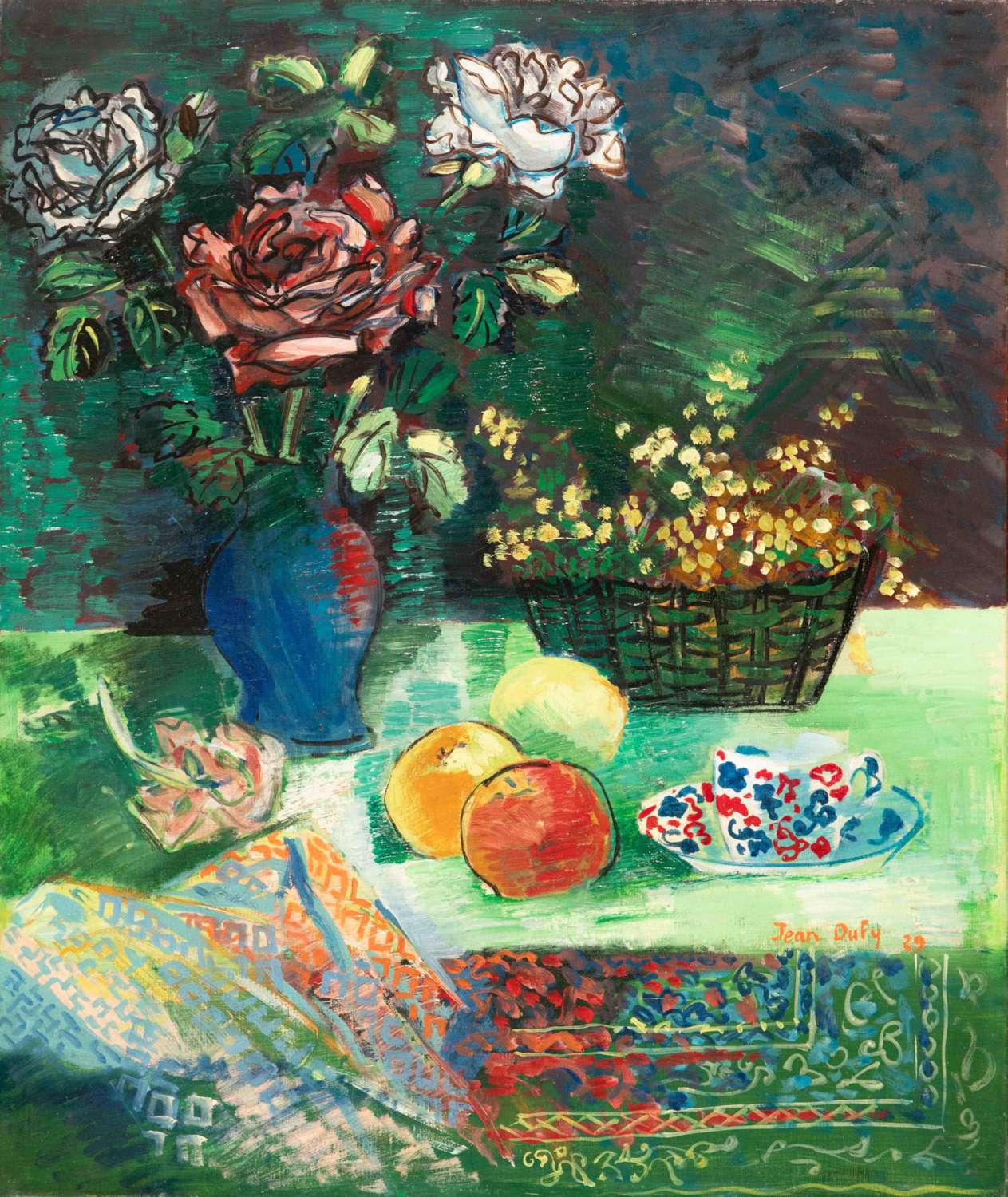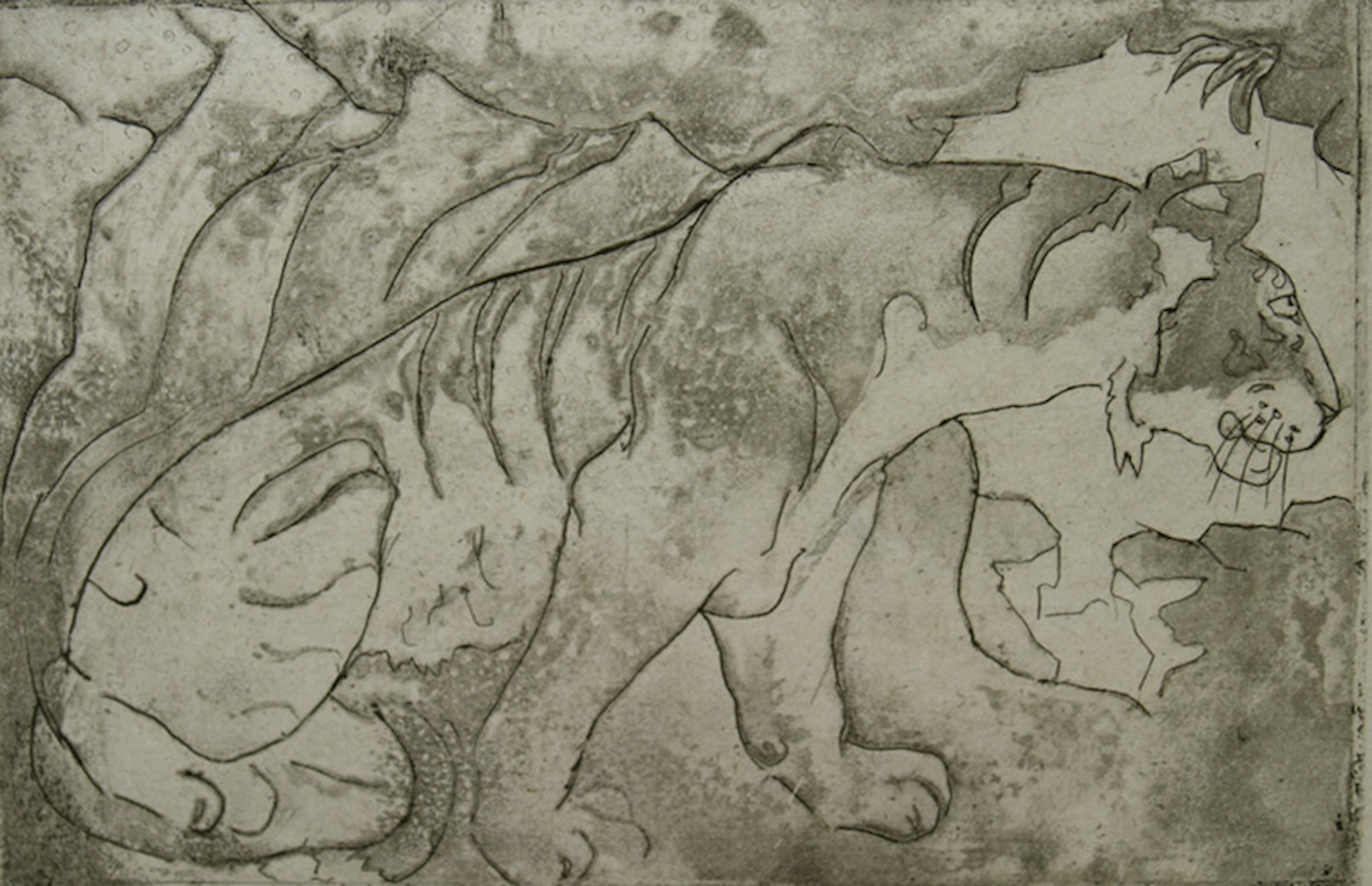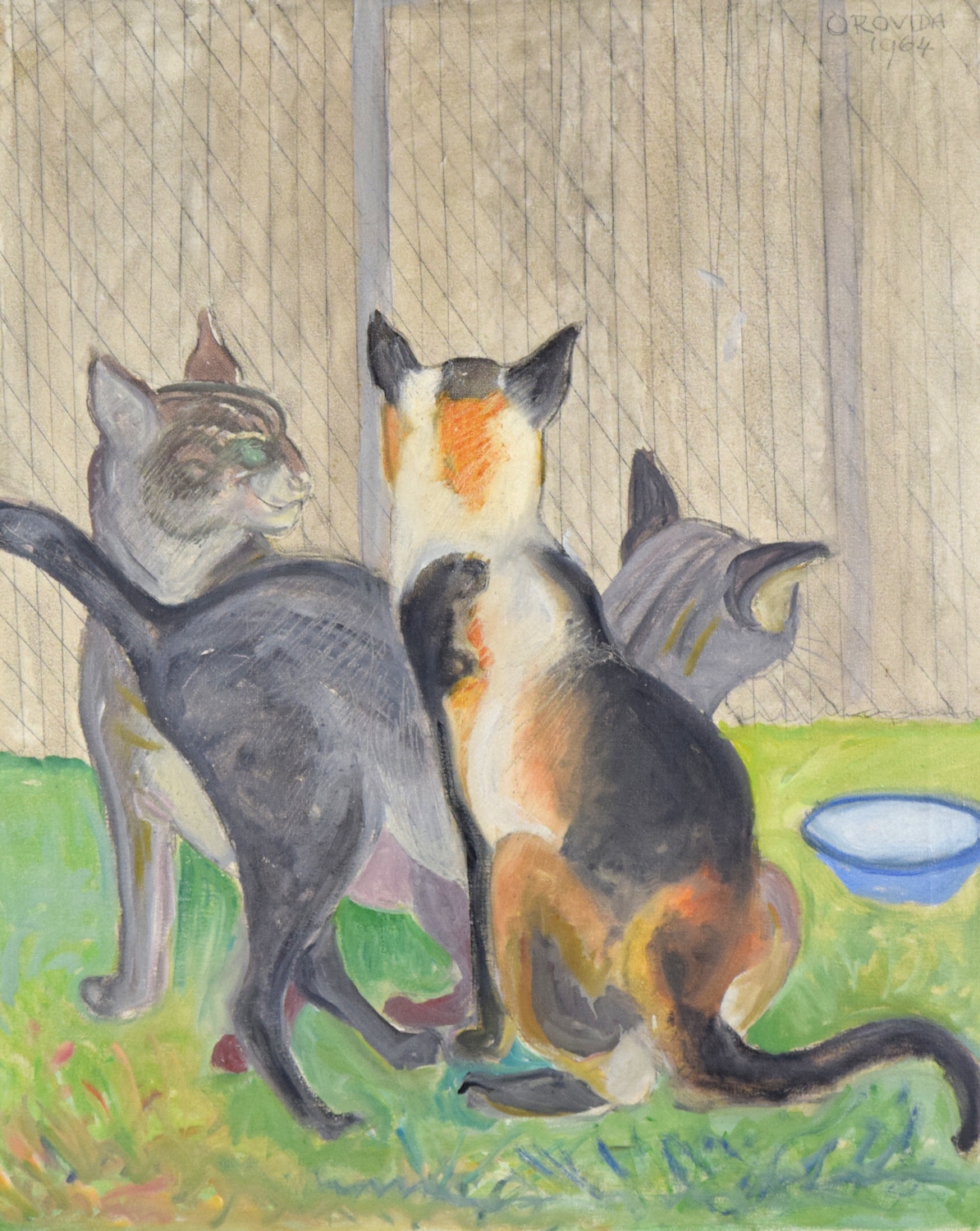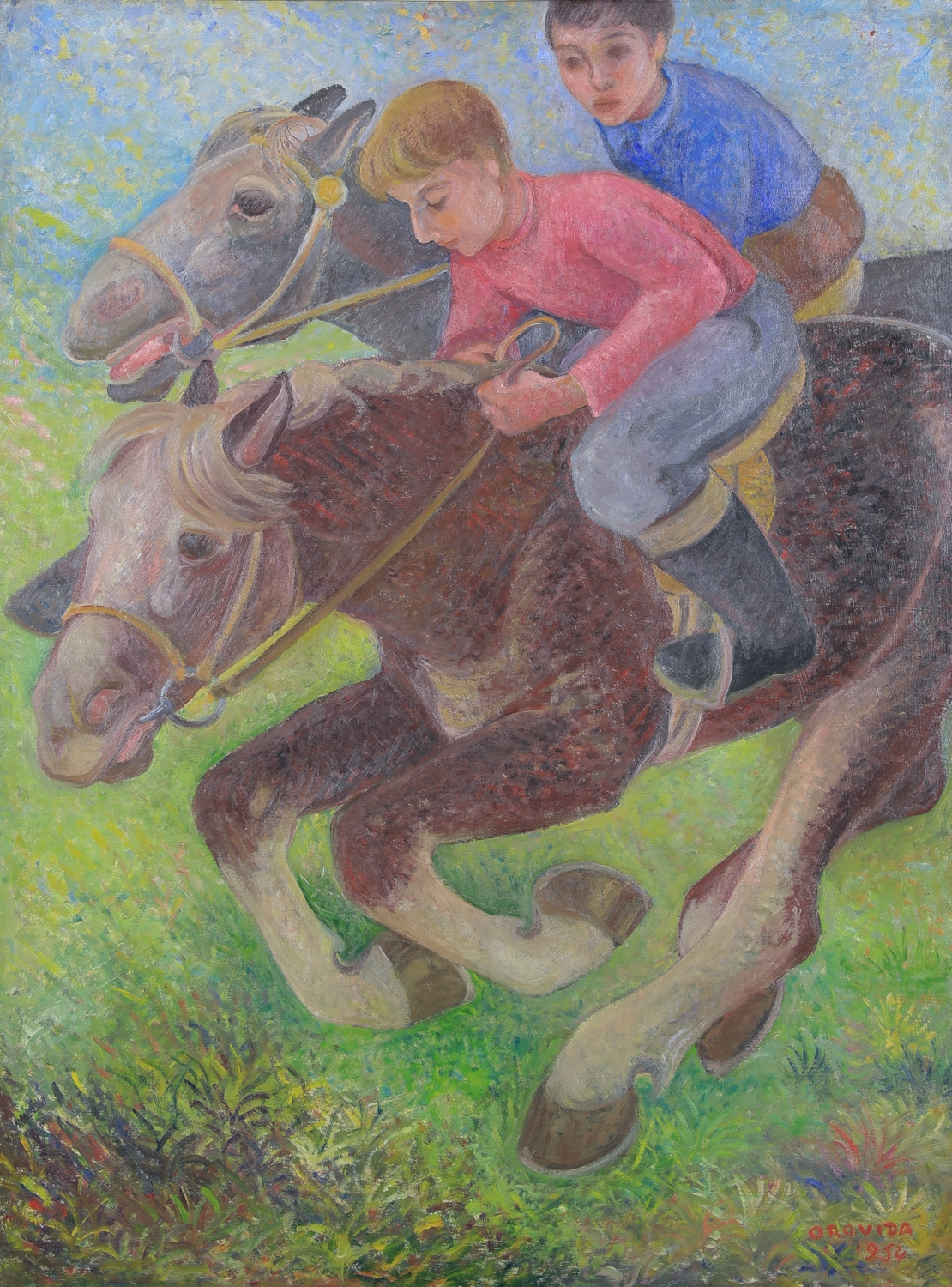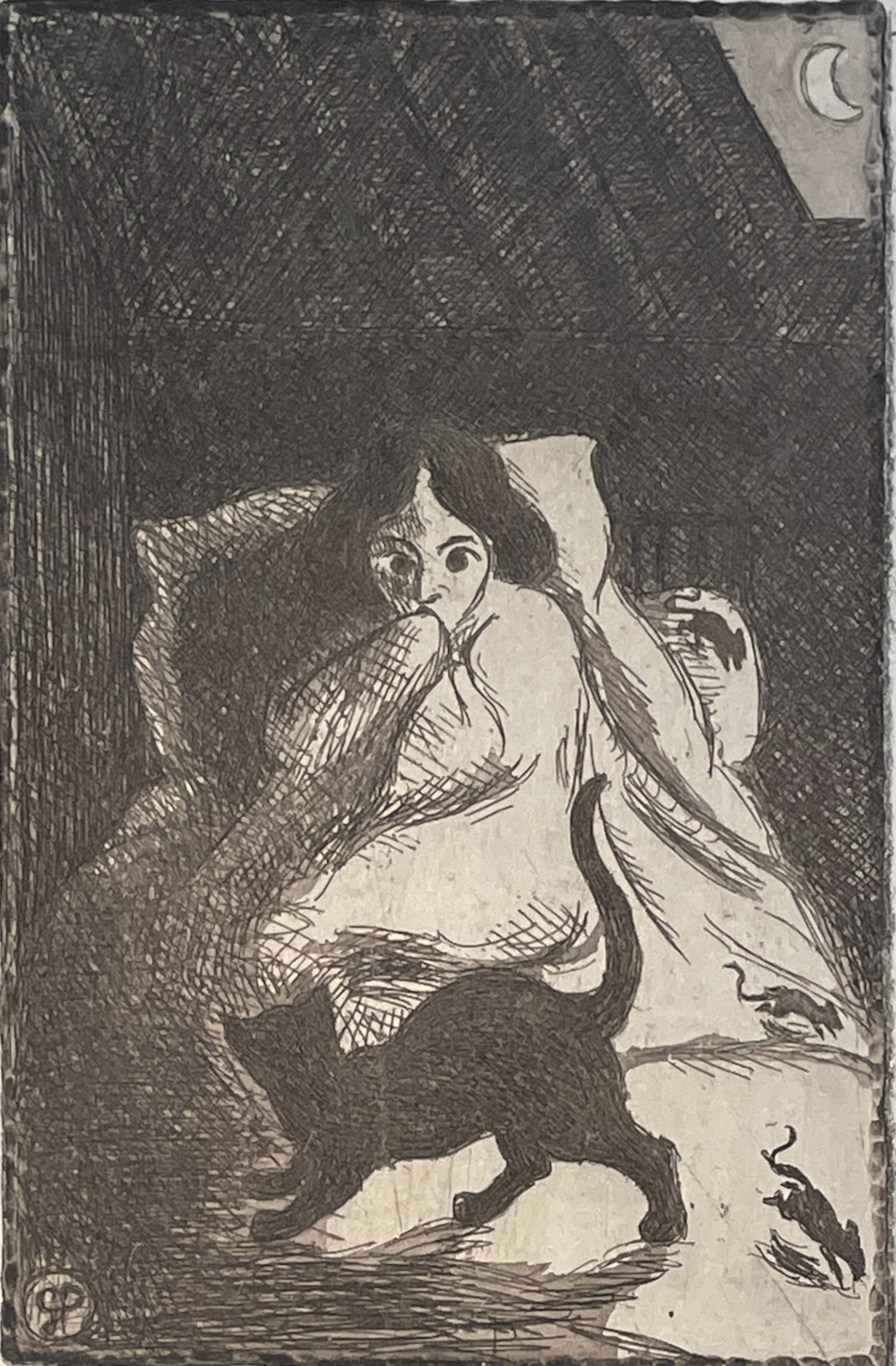Jean Dufy
1888 - 1964
Corrida Espagnole
33.2 x 55.3 cm (13 ¹/₈ x 21 ³/₄ inches)
Signed lower right, Jean Dufy
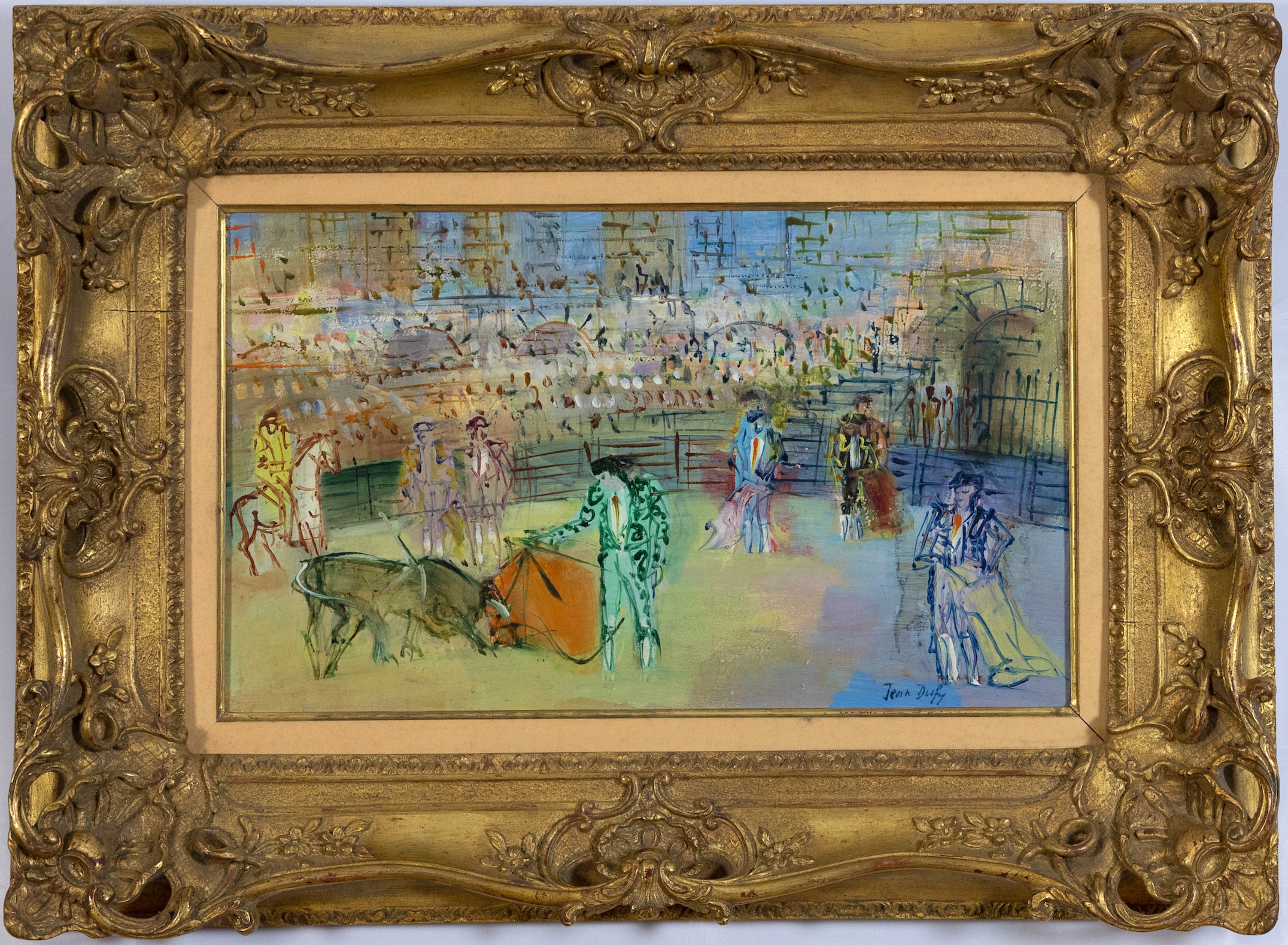
Newman Galleries, Philadelphia, Pennsylvania
Private Collection, Philadelphia, acquired from the above in 1954
Private European collection
This work will be included in the forthcoming Catalogue Raisonné vol.3 currently being prepared by Jacques Bailly.
This original work of art by Jean Dufy is available for immediate purchase.
Jean Dufy
biography
Called-up for national service in 1909, Jean served in a cavalry officer, before moving in 1912 to Montmartre in Paris. Whilst earning money as designer for a fabric manufacturer, Jean began painting and experimenting with colour. In pursuit of what Raoul called his ‘new kind of beauty’, Jean’s pictures were recognised by French art dealer Berthe Weill who, in January 1914, gave him his first solo-exhibition at her gallery in Pigalle. The First World War broke out only seven months later and Jean was mobilized, spending what he called ’52 months of service’ in various front-line roles until 1919. Returning to Paris, Jean took on another studio near Montmartre cemetery and immediately resumed painting. In December 1922, he married divorcee Ismérie ‘Lily’ Coutut and - although they would have no children - they remained happily married until their deaths over forty years later.
During the 1920s Jean’s exuberant paintings were exhibited extensively, whilst he continued to design fabrics as well as award-winning tableware, vases and porcelain. In the spring of 1930 Jean enjoyed the first of many exhibitions in New York City at the Balzac Galleries in Midtown. For the 1937 International Exhibition in Paris, Jean’s brother Raoul Dufy was commissioned to create a vast mural on the theme of ‘electricity’. Although Jean was quickly enlisted by Raoul as his collaborator, Raoul’s instistence on recieveing all the praise began their gradual estrangement which lasted until Raoul’s death in 1953.
After the Second World War, Jean continued to exhibit paintings in Paris as well as throughout the United States – New York City, Philadelphia, Boston, Portland, Chicago and Arizona – and even at Montreal in Canada. The New York Times perceptively described his colourful ‘modernistic’ Paris scenes as looking like ‘notes of music’. Chasing inspiration, during the 1950s Jean took the opportunity to travelled widely across Europe and North Africa. At the same time, a young American student in Paris called Jacqueline Bouvier bought a small and characteristic gouache of a beach scene by Jean, which would hang – when she became First Lady Jackie Kennedy – at the heart of the White House. Jean’s work soon featured in public collections across Europe and the United States. Yet, overwhelmed by the death of his wife at their home in rural France in March 1964, Jean’s ‘life lost its meaning’ and – only two months later - he died that May.
Jean Dufy
biography
you may also like
1888 - 1964
Parade Mexicaine
45.1 x 55.6 cm (17 ³/₄ x 21 ⁷/₈ inches)
1888 - 1964
Nature morte au panier de mimosa
55 x 46 cm (21 ⁵/₈ x 18 ¹/₈ inches)
1871 - 1961
Une femme, un chat et des souris
13.3 x 8.7 cm (5 ¹/₄ x 3 ³/₈ inches)













